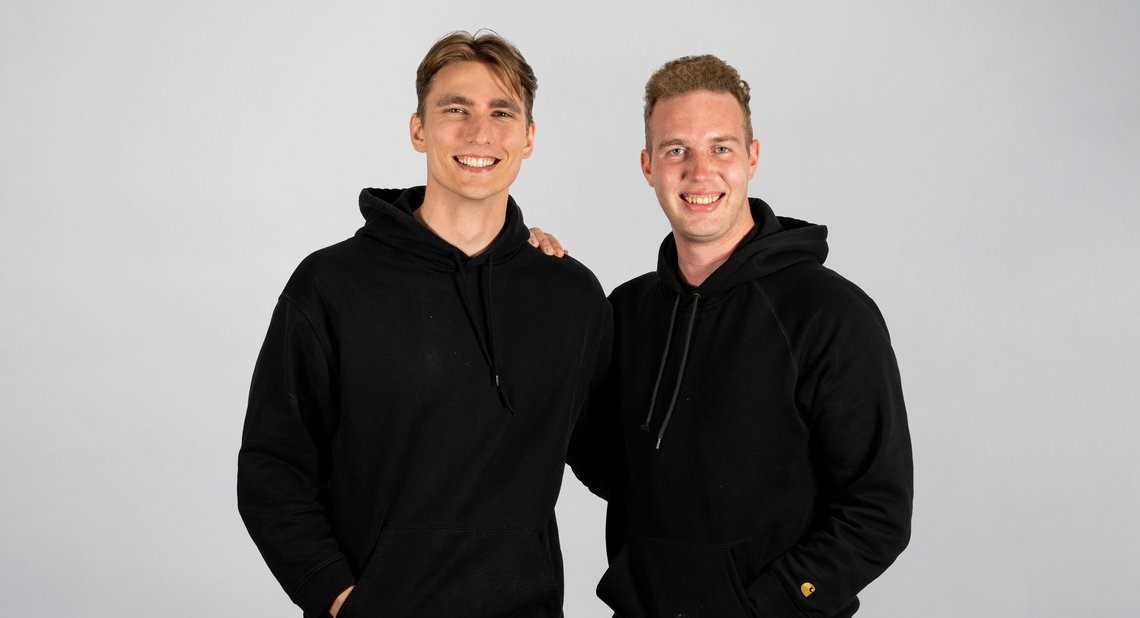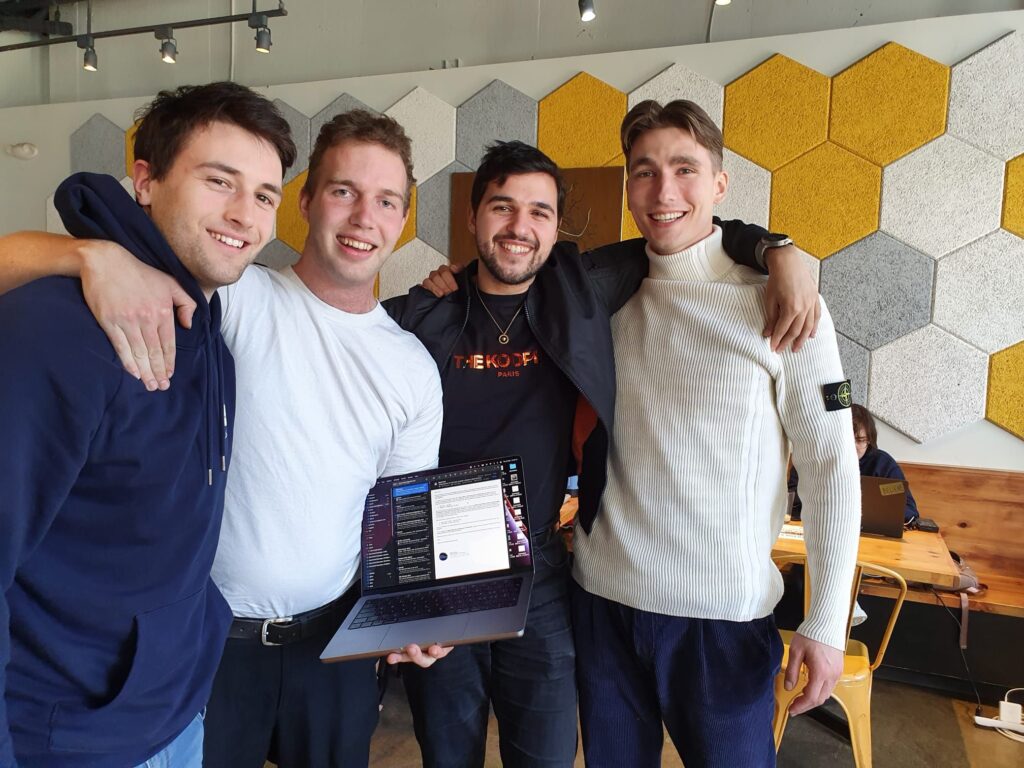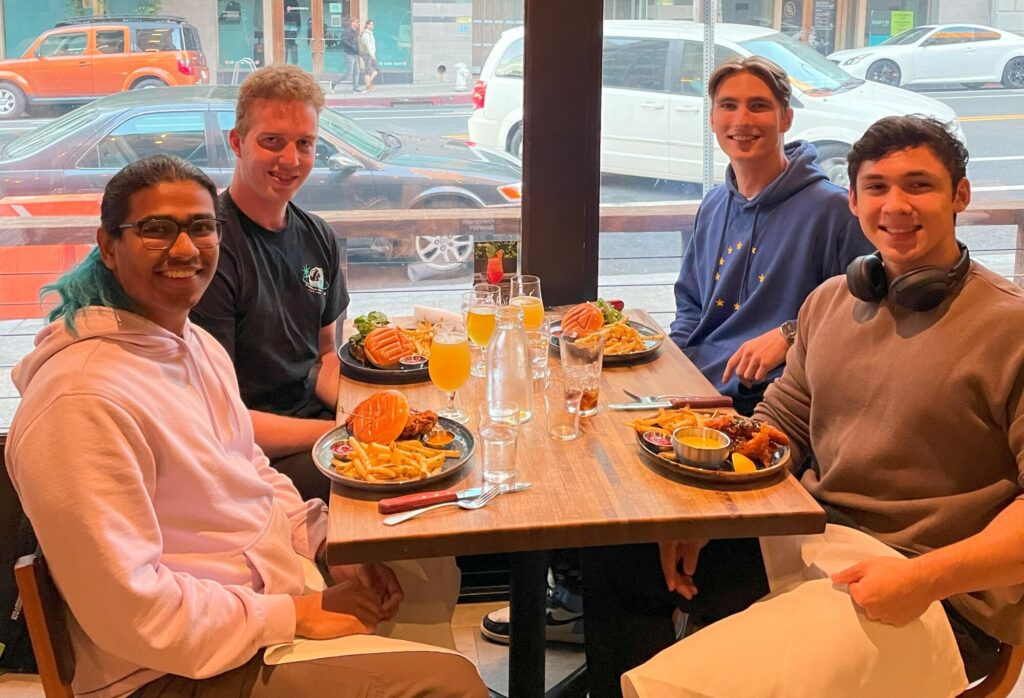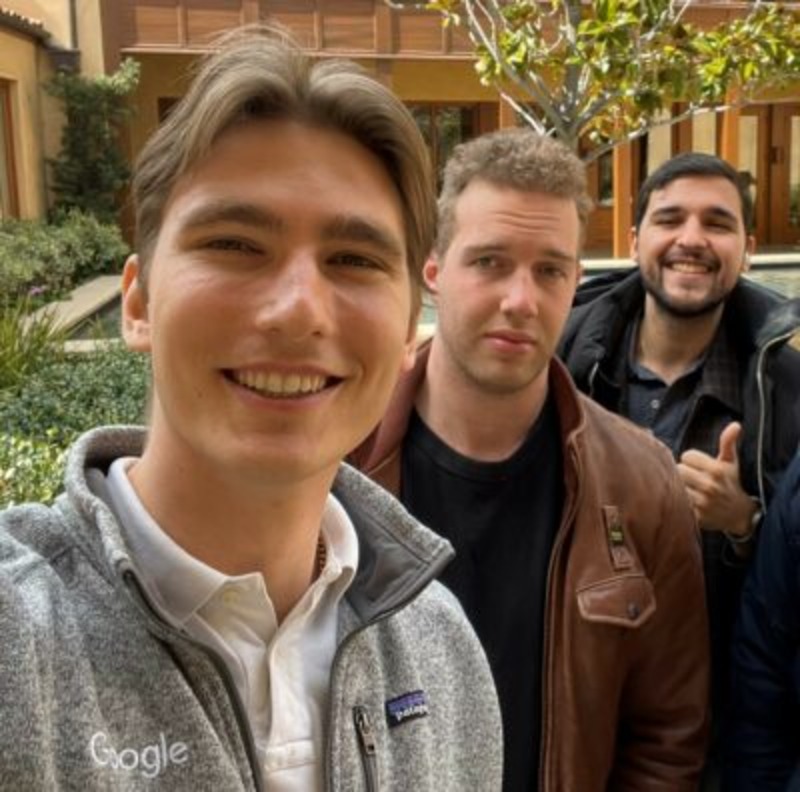Meet Tino from CYQIQ
Q: Can you briefly introduce yourself and your startup?
A: My name is Tino, I’m working on CYQIQ with my co-founder Richard, and we automate data analysis for consulting firms. We work with many tabular free text data, categorizing and running statistical analysis to help consultants conduct market research projects or analyze customer feedback data.
Q: What was the inspiration for this startup?
A: This goes back to how we started working on this around a year and a half ago. Originally, it came from me being in the finance industry and having to go through a lot of tabular text data. Richard had a similar stint at a consulting firm as well. From there, we realized, hey, this is super manual. We now have the technology to automate this process. So we went ahead and started building prototypes early last year. By September and August, we started realizing, okay, this market research customer feedback space is where we want to be. That’s when we began selling the first pilot projects, generating the first customers, and now have a couple of users on our platform.
Choosing SkyDeck and the Application Process
Q: How and why did you pick SkyDeck? How did they come into the picture?
A: Skydeck was a random decision. At that point, we weren’t exactly sure where we wanted to go, but we were quite strapped for cash, and Skydeck was a good opportunity to solve that problem. So we sat down, figured out the benchmarks we needed to hit for an accelerator, laid out a strategy, and worked on that for a month and a half. It gave us some cash and some room to breathe for the months ahead.
Q: What was the application process like?
A: Like any accelerator, you start by filling out their application form. They usually want a pitch deck, a video product demo, market research, and customer testimonials. After that, you go into a first-stage interview, which is a 20-30-minute session with standard VC questions. If you pass that, there’s a more elaborate interview about a week later, lasting 40-50 minutes with more people involved. They dive deeper into technical abilities, and personal backgrounds, and evaluate founder-market fit. The focus is less on metrics and more on how you think about them and draw conclusions from the available data.
Q: Do you have any further advice for the application process? What would be some tips for people looking to apply?
A: Take a structured approach. Think through the process from start to finish, make a plan, and try to stick to it. Changing your plan constantly might not be the best approach. Between interviews, show as much progress as you can. If you can demonstrate progress in short timeframes, it showcases your ability to execute, and that can make a significant difference.
Skydeck Program Overview and Funding Details
Q: What did the program look like once you got in?
A: Fairly straightforward. It’s a six-month program. The initial five to six weeks involve a lot of workshops and theoretical learning. After that, there’s a break from workshops, but in the last month and a half of the program, it becomes a guided process focused on fundraising, introductions to investors, and other related activities.
Q: Did you think the program was too structured? Would you have preferred more freedom to pick what you wanted to do? Did you feel forced to take classes that perhaps weren’t relevant or you weren’t as interested in?
A: Not forced. When it comes to accelerators, you have to keep in mind that you still have to do the work yourself. Any structure they provide should be seen as a present, and you can pick out what you want from it. In that sense, I think it’s fine that it’s structured. It’s up to the individual to make the most of that structure. However, I don’t think Skydeck or any other accelerator can provide the perfect amount of structure because every startup is different.
Q: So it won’t ever be a one-case-fits-all?
A: Exactly. It won’t ever be a one-case-fits-all. Every startup has its unique needs and challenges, and no accelerator can tailor the structure perfectly to suit every case.
Q: On the topic of cash, how much funding does Skydeck provide?
A: Skydeck provides 200 grand, and you raise it on a safe. There’s a value cap of around 2.5 million to 2.6 million.
Standout Program Feature, Expectations, Milestones, and Growth with Skydeck
Q: What was the standout feature of the program from memory?
A: What helped us was the UC Berkeley affiliation. With European backgrounds, our network in San Francisco wasn’t strong. Leveraging the UC Berkeley name and Skydeck brand helped us build a network, get introductions, attend events, and secure conference tickets we wouldn’t have gotten otherwise. The brand value, especially since we had little to no network initially, played a significant role.
Q: Was there any aspect that you felt didn’t meet your expectations? Something they can improve on?
A: To be fair, we didn’t come in with a lot of expectations, and they met all of these. However, there’s a realization that despite workshops and mentors, you still have to do a lot yourself. The workshops, while informative, might not always move the needle for your company, especially in more specific areas like marketing. It’s not a criticism but more a recognition of the unique challenges each startup faces.
Q: What’s the status of your company now? What have you achieved post-accelerator?
A: We started signing our first clients, made our first 30k in revenue, and have our first monthly recurring revenue. We’re still early; a lot of what we’re doing is customer exploration. Not much has changed since Skydeck, but it has opened a lot of doors for us.
Q: Do you think your current successes can be partly attributed to completing the course? Have they directly influenced your success?
A: In a sense, for sure. The biggest value add was a bit of cash for us to have some room to breathe. Without Skydeck, finding another source of initial funding might have been challenging, and that could have impacted our existence today. It played a crucial role in sustaining us.
Q: Does SkyDeck deliberately target people fresh out of university? Is that a theme?
A: No, I wouldn’t say so. Most companies in our cohort were significantly older, both in terms of founders’ age and the stage of the company. It’s a bit unusual to have very early-stage companies; usually, they have a year or two of operation by the time they get into Skydeck.
Q: What are your next milestones, and do you think SkyDeck is still supporting you with those?
A: Our next milestone is clear – scaling our sales. SkyDeck is still helping with that; we reach out to people for advice. While it’s not super valuable for introductions or finding the right people, having a group of people to bounce back ideas provides some value, confidence, and motivation. It does offer a sense of security.
Final Advice for Accelerator Applicants
Q: Do you have any final piece of advice for anyone looking to apply?
A: Be sure of why you want to apply and what you need the money for. Come in with a plan. This will help you go through the application process. On the other side, you also have to be pretty convinced of yourself if you want to do this. Nobody’s going to do it for you. If you come in clueless, hoping an accelerator like Skydeck will tell you how to build a company, that’s probably not how it works. Have a clear plan on what you want to achieve to make the most of the opportunity.




